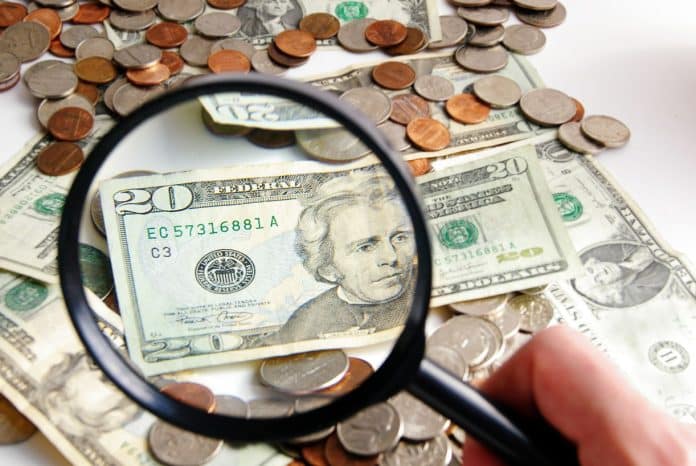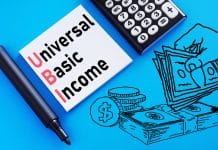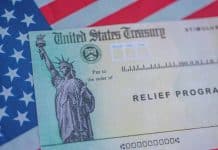
According to the National Association of Unclaimed Property Administrators (NAUPA), one in ten people across the nation have forgotten money that is waiting to be claimed, or unclaimed money. The United States Government has billions of dollars in unclaimed money or property. There is a big probability that you are one of them. Maybe you are lucky enough to be one of them, or not. But, you will never know until you find out. The main question is what does unclaimed money mean? You should know what it means and how you can receive it. This article will do exactly that and tell you how much you could claim from the government.
What Does Unclaimed Money Mean?
You will find that unclaimed money or unclaimed property is known as any account or property in financial entities that are currently inactive for about a year or a longer period For your property to be “unclaimed”, you will need your property to remain dormant for a certain period. The dormancy period is the time that your property stays inactive. Once the dormancy period passes, the state is under a legal obligation to take over the property or account. If you want to avoid the trouble of burying yourself in paperwork, then you should try the National Association of Unclaimed Property Administrators’ search engine.
Different Types of Unclaimed Money
There are different forms of unclaimed money. So, it is not a one-time opportunity for you. It is fairly common that people forget about their financial properties or accounts and leave it inactive. If you are the type of person who forgets what they had for lunch the other day, then you might have forgotten about this too. There are eight different types of unclaimed money. The eight different types are the following:
- Unclaimed Money in Your State
- Money from Employers
- Money from Insurance
- Money from Tax Refunds
- Money from Banking and Investments
- Unclaimed Money from a Bankruptcy
- International Unclaimed Money
- Undelivered Federal Tax Refund Checks
1. Unclaimed Money in Your State
True to its title, you could find unclaimed money from your state. There are certain businesses who forward money to the state, if they cannot reach the owner. The state keeps these unclaimed financial properties that could come from insurance policies, your state government, or bank account. This means that you can receive money from the state that you did not claim. Despite the premise of “out of sight, out of mind”, the state will store these funds for you.
2. Money from Employers
Before you get mad at your old boss, unclaimed wages from employers are not what you think it means. You can receive two forms of unclaimed money from your previous employer: unpaid wages or pensions. If you did not receive any wages, then the Department of Labor reclaims the back wages for you. In this case, you can be mad at your old boss. However, you could find unclaimed pensions when companies go out of business or when a structured pension plan expires. This means that if the company you worked for goes out of business or they end a pension plan, then you can cash out.
3. Money from Insurance
Regarding unclaimed insurance funds, there are two types of insurance funds, as well. These two types are: VA Life Insurance Funds and\or FHA-Insurance Refunds. If you have served our country and you are currently a veteran, then you can receive insurance funds from the U.S. Department of Veterans Affairs(VA) database. Also, you can find unclaimed funds from the VA as a present or previous policyholder, or if you are a beneficiary of the VA. But, you should keep in mind that the VA database does not include all forms of unclaimed money. You will not find funds from Service-Members’ Group Life Insurance (SGLI) or Veterans’ Group Life Insurance (VGLI) policies from 1965 until present.
For the Federal Housing Administration, or FHA-Insurance Refunds, you will find that you can qualify for a refund. If you have an FHA-Insured Mortgage, then you might qualify. Furthermore, you can receive these refunds from the U.S. Department of Housing and Urban Development (HUD) that makes these refunds available.
4. Money from Tax Refunds
You might not believe it, but it is fairly common to file your taxes and find that the Internal Revenue Service (IRS) owes you a tax refund. If you do not claim your tax refund or if it was not delivered, then the Internal Revenue Service (IRS) could owe you money.
5. Money from Banking and Investments
The most common form of unclaimed money is through banking and investment. Let’s say that you take a risk and decide to go all in on an investment. Now, let’s say it did not pan out. (It happens, do not worry about it). There is a chance that you can receive unclaimed money from that not-so-great investment.
The first type of unclaimed money from banking and investment is from bank failures. If a financial entity fails or goes bankrupt, then there is unclaimed money waiting for you. Instead of combing through your bank’s newsletter every time, you can always look through the Federal Deposit Insurance Corporation (FDIC) and find out the status of the financial institution.
As for the second type of unclaimed money from banking and investment, you can receive it from credit union failures. The unclaimed money comes in the form of deposits from credit unions that could not make it. To find out whether a credit union failed or not, you can look through the Securities and Exchange Commission, which provides a list of enforcement cases. The enforcement cases show whether an individual or entity owes their investors any funds.
The fourth and final type of unclaimed money through banking and investments is from savings bonds. If you have a savings bond that has discontinued earning interest then you will find unclaimed money waiting to be claimed.
6. Unclaimed Money from a Bankruptcy
It is pretty simple, regarding unclaimed money from a bankruptcy. You are an individual, or bankruptcy creditor, that is owed money from a business owner that declared bankruptcy. If the bankruptcy court did not distribute the funds or you did not ask for the money, then it remains unclaimed.
7. International Unclaimed Money
The same with unclaimed money from bankruptcy, international unclaimed money is self-explanatory. As a U.S. national, you could find money that foreign governments owe you. If you have lost any property in another country, then the government of that foreign country owes you money.
8. Undelivered Federal Tax Refund Checks
If you managed to move and you did not let the IRS or the U.S. Postal Service (USPS) know about that, then you will probably not receive your refund check. The IRS will store your refunds until you decide to claim them. If you want to know anything about your tax refund, then the IRS can give you that information. All you have to do is look through the Where’s My Refund page of the IRS and you will find everything you need. (Also, finish this article and update your address with the IRS and USPS).
Additionally, you will find that you are qualified for a federal tax refund, but you did not file a return. The refund that you qualify for will be considered unclaimed money. However, this only applies if federal taxes are deducted from your pay or if you qualify for the Earned Income Tax Credit (EITC). Additionally, your wages could have been below the filing requirement. This could be why you might not have filed a tax return. However, you can still file a tax return in the next three years to be able to receive your refund.
In Conclusion
Overall, there is a possibility that you have unclaimed money lying around. If you have any financial accounts or properties that are inactive for a year or so, then the state takes over the property. Once the state takes over the property or account, the state labels it as unclaimed money. Think of it as abandoned money, more than anything. There are different forms of unclaimed money. You can receive it from failed investments, bankruptcy, tax refunds, or failed credit unions. If you want to find out whether you have unclaimed money, then you can look through the national database or look through official state government websites.
Typically, you will receive unclaimed money through checks. You can fill out your claim form and find out whether your state accepts online claim forms or not. There are some states that only accept mail forms, instead of online claim forms. Make sure that you always stay on top of your funds and keep your own database of all your properties and financial accounts. As fun as it is to receive unclaimed money, it would be better to not lose it in the first place.




















